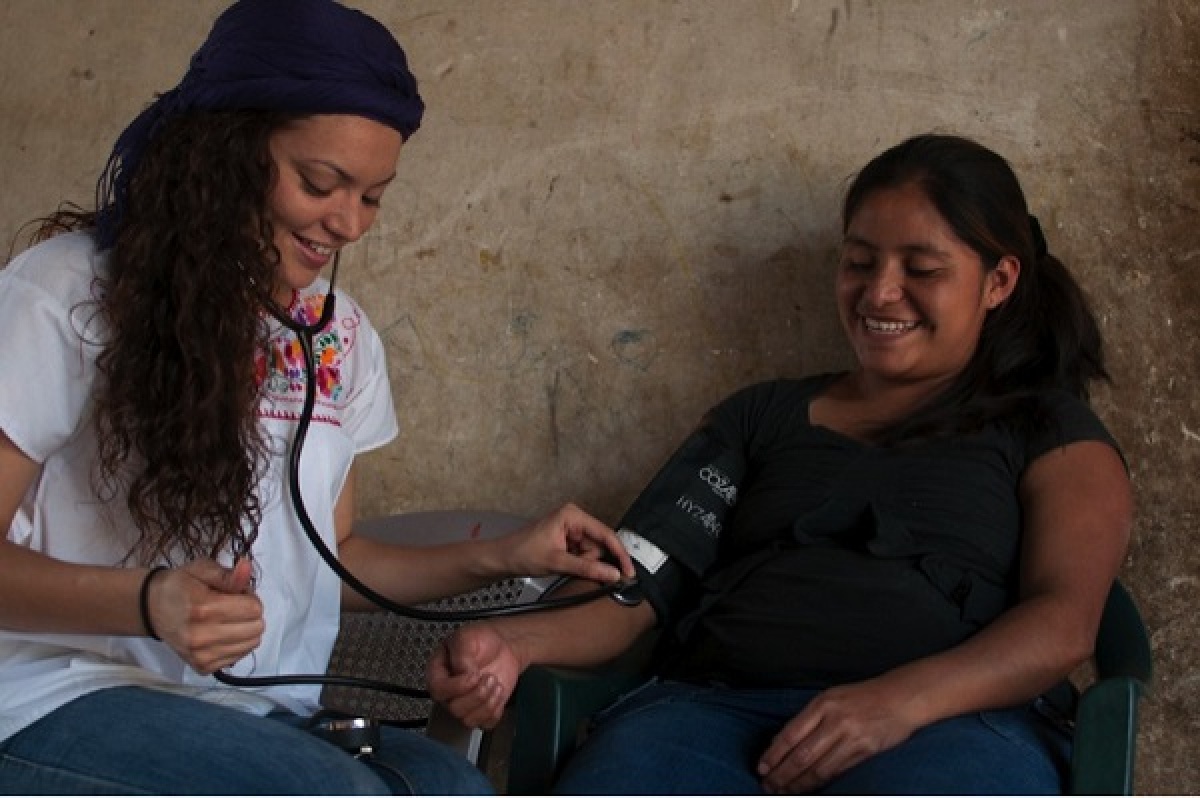Finding Patients in Mexico with Home Visits and mHealth Technology
Posted on Dec 4, 2013

Cell phone signal doesn’t reach the remote mountains of Mexico where our patients live.
So what good could mobile technology do to help improve health care?
A lot, it turns out.
Twice a year, Partners In Health staff make door-to-door visits in the some of the six rural communities PIH serves in Chiapas, Mexico. Volunteers with Compañeros En Salud, our sister organization, ask families about their health and refer them to clinics for care.
Called active case finding, these home surveys help ensure that people in need of care get it. Instead of waiting for patients to show up at health facilities, staff visit patients’ homes to look for signs and symptoms of diabetes, hypertension, epilepsy, asthma, depression, and tuberculosis.
“Our community health workers say that one of the best things about active case finding for chronic diseases is that people can learn when they have an illness,” said Rosabelle Conover, research assistant for PIH/CES. “Otherwise, they die without knowing why or receiving any treatment.”
But the paperwork had a tendency to pile up. Screening patients and crunching the numbers using paper forms was a time-consuming and error-prone process.
So this July, PIH/CES turned to mhealth technology, the topic of the 5th annual mHealth Summit in Washington, D.C., this week.
The team decided to use low-cost Android tablets with a specially designed app based on the open-source program CommCare.
Jon Payne, now a technical advisor for the mHealth Alliance at the United Nations Foundation, worked with student consultants at the Boston University School of Public Health to design the user-friendly program specifically for PIH/CES. It automates the referral process based on criteria defined for the team. It also decreases dependence on staff memory for referral criteria, helping the team adhere to medical protocols for disease screening. It allows staff to easily view all referred cases, determine which patients have attended their referral, and identify those who need a second home visit.

The CommCare app allows PIH/CES staff to refer patients for care and see whether they visited community clinics for follow-up.
Mexican medical students made door-to-door visits with the tablets, using the app to screen for the same illnesses. The program adapted the survey questions for efficiency and accuracy—for example, triggering questions about diabetes depending on the patient’s age. In all, the team screened more than 5,000 people for chronic disease, a growing problem in Latin America.
The program decreased errors, allowed the team to quickly aggregate the data in the field, and improved follow-up care for people found to have symptoms of chronic disease.
With the success of the pilot, PIH/CES will use the tablets again this month to screen more families in isolated communities. The team is continuing to refine the program for best results.
A volunteer with PIH/CES uses an Android tablet to interview a mother in Chiapas about her health. Photo: Patrick Elliott/Partners In Health


